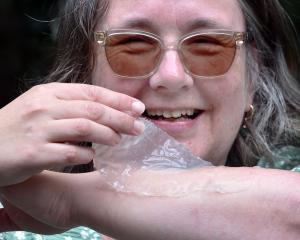A job offer from the surgeon who carried out the UK’s first heart transplant led to one of the best experiences in a Dunedin nurse’s 54-year career.
Day surgery unit clinical co-ordinator Pam Nichols is set to retire on Friday, ending a career based mainly at Dunedin Hospital — but including a decade-long stint working in London with some of the global pioneers of cardiac surgery.
Mrs Nichols (72) began nursing at age 18; her sisters were also nurses and it was something she had always wanted to do.
Prospective nurses at the time were asked why they wanted to enter the field, she said.
"The correct answer was ‘because I want to help people’ — apparently I got 100%."
She lived in the nurses’ home across the road from Dunedin Hospital while completing her training and formed life-long friendships.
"We all worked together, trained together, partied together and there was great comradeship."
As a newly registered, "terrified" nurse she was sent to work for three months with Brian Gerald Barratt-Boyes — later Sir Brian — at Auckland’s Green Lane Hospital.
Sir Brian performed New Zealand's first open-heart surgery.
Working with him was one of the biggest highlights of her career, but also one of the most challenging.
On returning, she helped establish the cardiac unit at Dunedin Hospital in 1972, working alongside Prof Patrick Molloy.
It was an "amazing" experience, but she decided to travel overseas in 1976.

"I went to London basically to work with cardiac surgeons there. Donald Ross, Magdi Yacoub — pioneers of cardiac surgery."
Her time there was one of the highlights of her career, she said.
However, there were huge challenges, such as dealing with the young victims of chemical warfare in the Iran-Iraq War who had been sent to London.
In 1986, she returned to Dunedin Hospital, where she spent the rest of her career.
Changes over the last five decades included a rise in the number of managers, and an approach to training nurses that was far more academic and seemed to have lost "that personal touch".
During the 1990s, nursing leadership was in a bad way, although it was now better than it had been for many years.
"I’m pleased we have got the leadership back and I’d just like it to continue like that — and get some more beds in the hospitals, more nurses in the hospitals."
The nature of the work could be very rewarding.
"That is really satisfying, to see that somebody that comes into the operating theatre who looks like they may not leave in one piece actually survives, and you get to see them leave the hospital."
She had always loved her job.
However, she would not miss getting up at 4.45am every day, and was quite looking forward to retirement.












